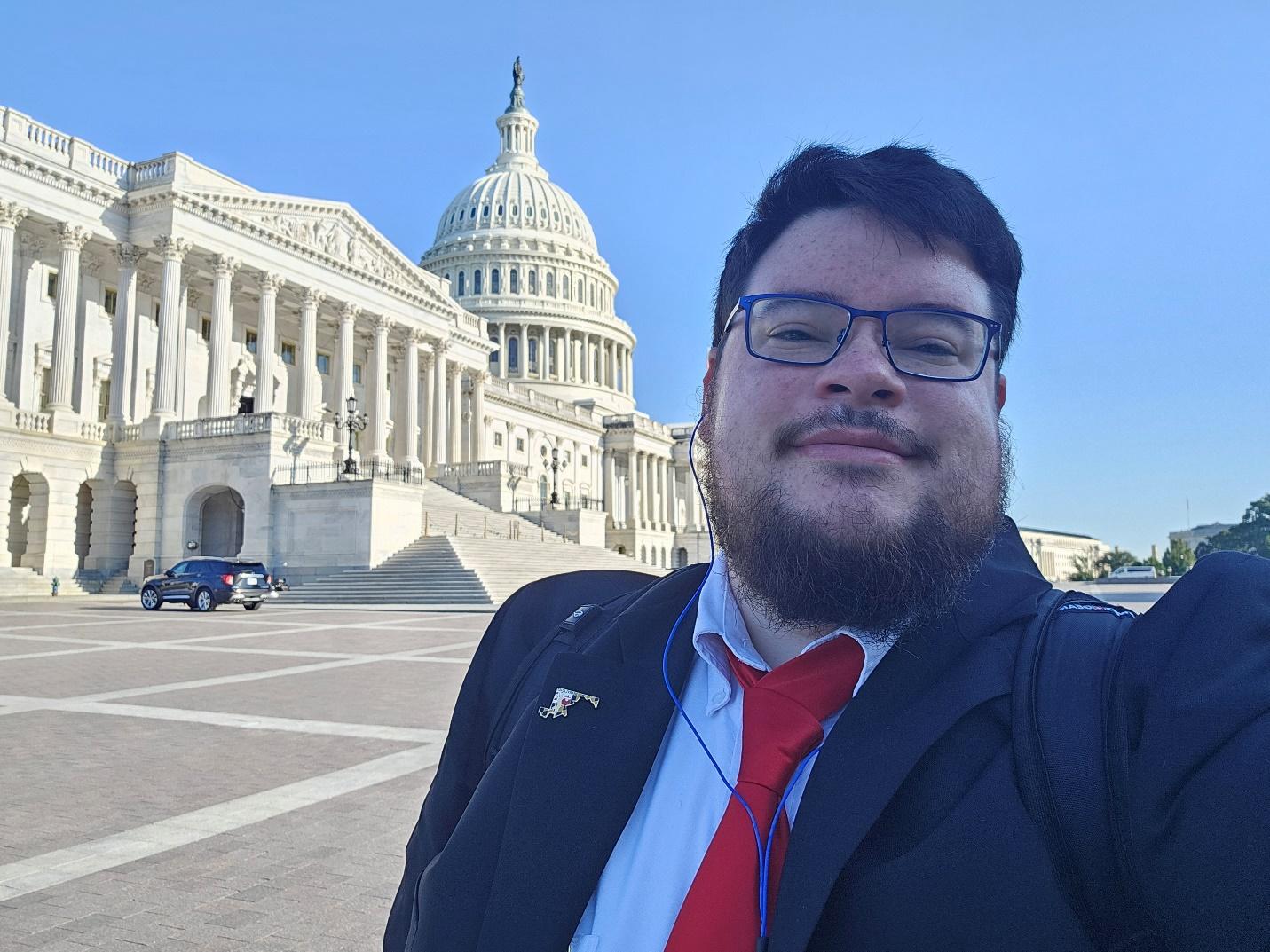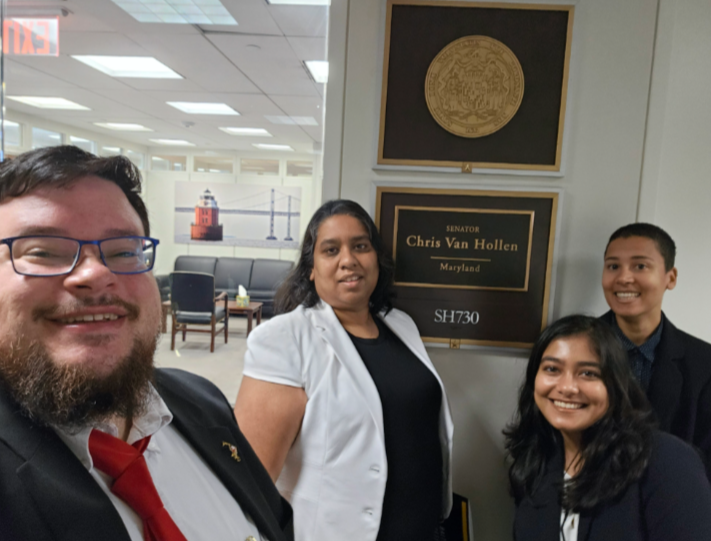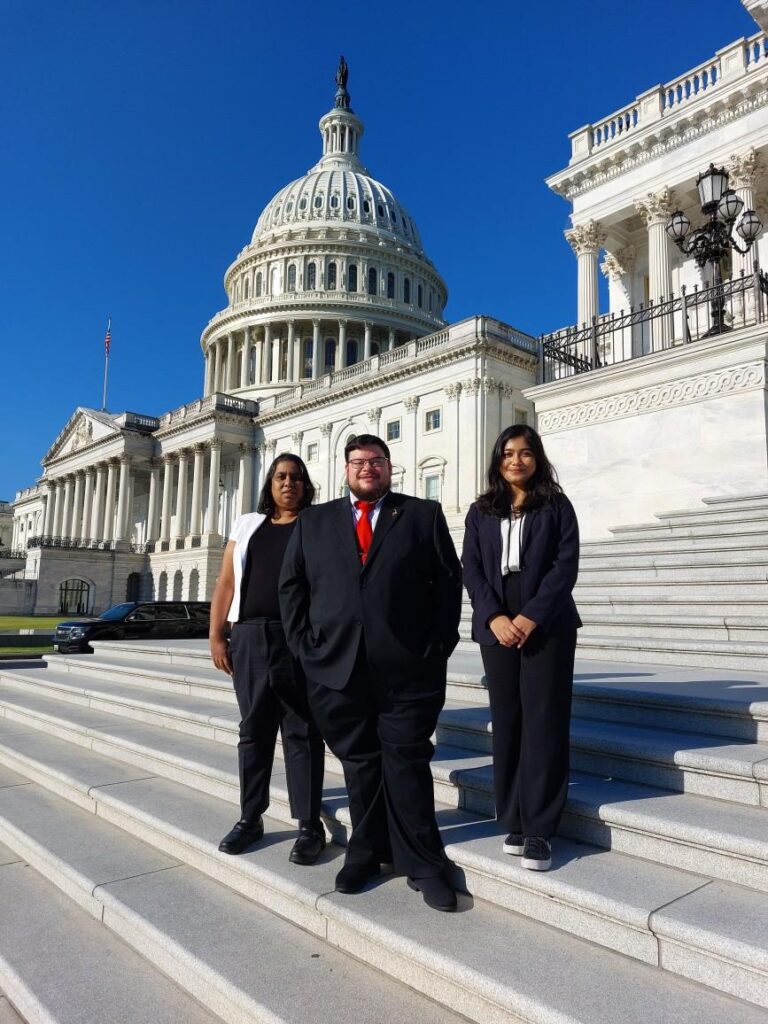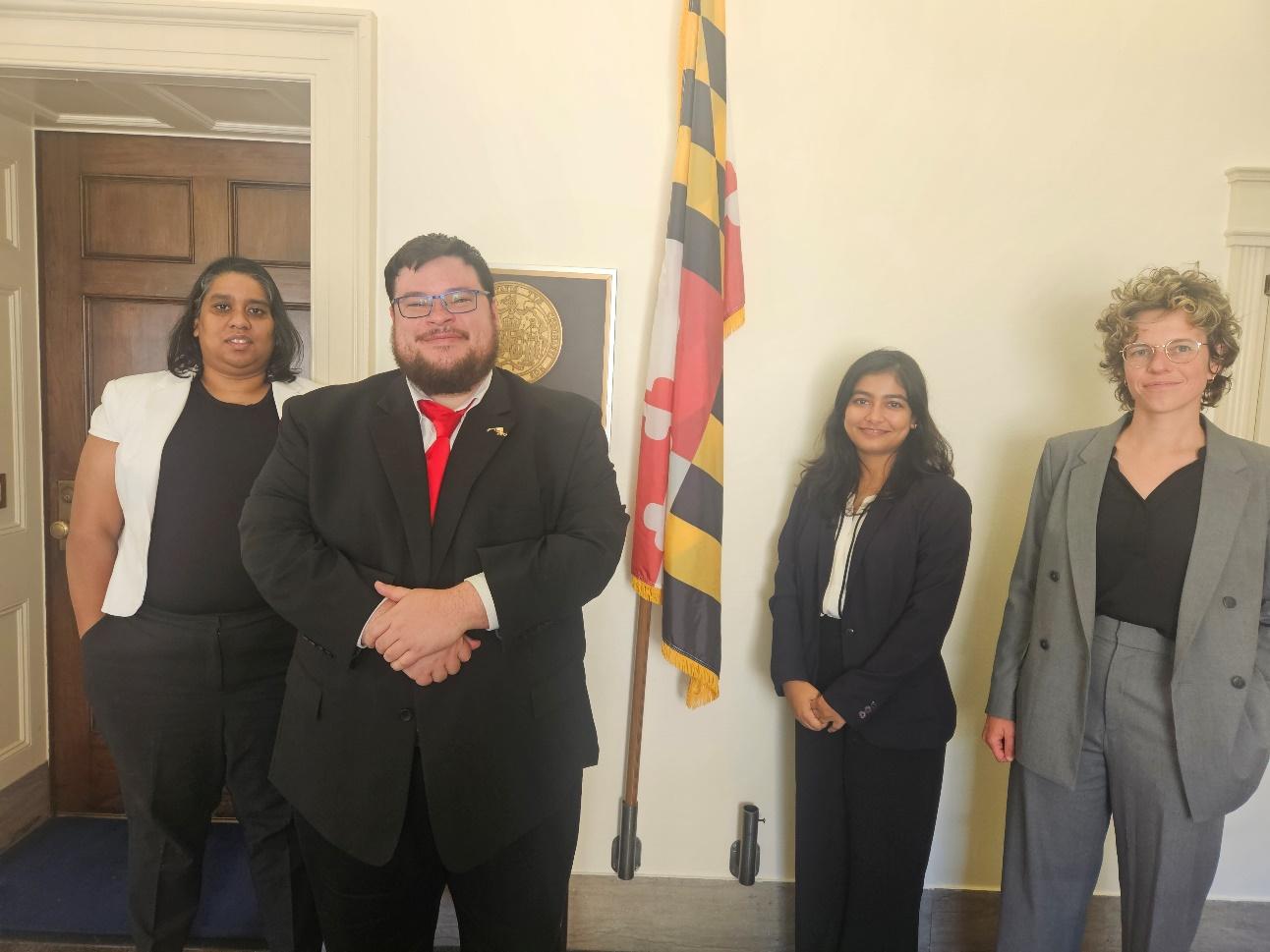By Joseph Patton, Faculty Researcher for the Earth System Science Interdisciplinary Center at the University of Maryland, College Park
Note: This is a guest blog post; it represents the views of the author alone and not the American Meteorological Society or the AMS Policy Program. Geosciences Congressional Visits Day is non-partisan, and promotes policy engagement without advocating for particular viewpoints. AMS has not taken a position on the legislation discussed by the author in this post.
In the pursuit of scientific advancements which benefit our communities, sometimes society and lawmakers lose perspective of the research workforce. A significant portion of scientific labor is done by postgraduate students and early-career professionals who often struggle to make ends meet while living in the large, expensive urban areas where their institutions are located. This puts undue financial stress on people who are already working long hours through nights and weekends to find and implement solutions to global problems. This financial insecurity threatens not only the livelihoods of these individuals, but also the quality of their work. No matter their academic wherewithal, someone who is constantly worried about making rent or affording groceries that month may accomplish less, or experience failing mental and physical health. I’ve noticed in my own work extreme disparities in pay for graduate researchers at higher education institutions that are just a few miles apart from each other in Maryland. I believe that it is paramount to our goals of advancing scientific research to ensure that the researchers carrying out this work are able to meet the basic needs of life.
That is why, this September, I was excited to take part in the Geosciences Congressional Visits Day (GEO-CVD) hosted by the AMS and other Earth science societies. GEO-CVD provides a one-day workshop on the federal policy process, followed by a day of visiting Congressional offices, meeting with staff to discuss issues that participants feel are important. My group, which included colleagues from the University of Maryland system, traveled to Capitol Hill to discuss several bills which directly address the financial and residential insecurities of the backbone of our scientific research workforce.
Our team met with the staff of the two Maryland senators, as well as the representative for the Congressional district including the University of Maryland.
The Bills
One bill for which my group advocated was the RESEARCHER Act, which directs the White House Office of Science and Technology to develop new policies and guidelines for federal research agencies to address the underlying causes of financial insecurity for student and early-career researchers. It would then require federal agencies to implement these policies. Such policies might include standardizing the pay of graduate and early-career researchers working under federal grants at public universities such as UMD, or new guidelines on official employment status and the availability of adequate, affordable healthcare, in addition to more issues surrounding their quality of life.

Another bill we advocated for is the Keep STEM Talent Act. The United States attracts some of the best talent from all throughout the world with our first-rate universities and research institutions. Yet in addition to broad financial insecurities, many foreign nationals struggle with challenges in maintaining residency in the United States. The Keep STEM Talent Act would exempt researchers with a master’s degree or higher in their field of study from immigration limitations when seeking an immigration visa as a step toward permanent residency status. It would also allow those individuals to pursue an immigrant visa even while living in the country on a non-immigrant visa (e.g., a student visa). This would give the top minds in STEM fields a more secure way to approach living and working in the United States, while maintaining their ability to study and work at American universities in the meantime. Such changes would benefit the research capabilities of institutions across America and nurture the careers of scientists like my colleague Daile Zhang, a foreign national from China and a pioneering lightning researcher. After working in the United States for nearly a decade, she just this fall accepted a tenure-track faculty position at the University of North Dakota.
Joseph Patton, left, with his legislative science advocacy group for the Geosciences Congressional Visit Day in front of Sen. Van Hollen’s office (Photo: Joseph Patton)

Being Heard
Experiencing what it’s like to walk down the winding halls and seemingly endless basements of the buildings surrounding the U.S. Capitol Building was a career-defining opportunity. We briefly got to meet, in person, our representative in Congress, and feel like our voices were heard. We discussed issues close to us as researchers and as people. We genuinely feel empowered by the opportunity to effect change both in Maryland and at a federal level.
One thing I’ve learned from my career so far (I’ve been a graduate student, a federal employee, and now a faculty researcher), is that nearly every researcher is in their niche STEM field because they are incredibly passionate about the work that they do. Whether that’s an astrobiologist studying how to grow plants on Mars, a chemical engineer finding the next breakthrough in energy storage, or an oncologist working on the cure for a specific type of cancer, we blur the lines between work and personal time and spend long hours in the lab or at our workstations because our work is a part of who we are as people. It’s not for money, fame, or even recognition; it’s to make sense of the complicated natural world in which we all live, explore new possibilities, help people feel safe and secure in a sustainable way of life, and better our communities. When we take care of researchers, we all benefit from the result.

I want to send a sincere and heartfelt thank you to the American Meteorological Society for offering us the opportunity to learn about the science policy process as our team set out to advocate for issues that are close to us as researchers. I also want to send a special thanks to Emma Tipton, a policy fellow with AMS, for helping us individually work on our messaging and guiding us through the maze (literally and figuratively) of Congressional advocacy. We appreciate the time and efforts of the Congressional staffers and legislative aides for Senators Ben Cardin and Chris Van Hollen as well as Representative Glenn Ivey.
<<Joseph Patton (center) stands on the steps of the Senate side of the U.S. Capitol Building with his fellow legislative science policy advocates (Photo: Emma Tipton)
Photo at top: Joseph Patton with his legislative science advocacy group for the Geosciences Congressional Visit Day in front of Maryland Rep. Ivey’s office. (Photo: Joseph Patton)
About Geosciences Congressional Visits Day
Geosciences Congressional Visits Days (GEO-CVD) is a two-day, non-partisan science policy workshop hosted by AMS alongside other Earth science societies. Participants learn about Congress and build relationships with Congressional offices, to help ensure that Members of Congress and their staffs have access to the best available scientific information relating to weather, water and climate.
